Digital Education: Education today for tomorrow
|
Teaching (Today for) Tomorrow: Bridging the Gap between the Classroom and Reality 3rd International Scientific and Art Conference |
|
Sandra Sovilj-Nikić, Nikolina Katić, Bojana MihlFaculty of Education, University of Novi Sad, Serbia sandrasn@eunet.rs |
|
| Section - Education for digital transformation | Paper number: |
Category: Professional paper |
Abstract |
|
Following modern trends and listening to the needs of education, economy and society, a new study program for undergraduate and master's studies at the Faculty of Education in Sombor of the University of Novi Sad entitled Digital Education was accredited. The goal of this study program is to train an educational profile that will be professional help and support for teachers in the application of information-communication technologies (ICT) during the teaching. Having in mind that this profile possesses the necessary knowledge in the field of digital technologies on the one hand and all the necessary pedagogical, psychological and methodical knowledge on the other hand, the Digital Education study program meets the challenges of modern education. The aim of the research in this paper is to examine and determine the degree of digital competence of teachers and the level of capability for independent use of ICT, as well as to determine their attitudes toward the introduction of a professional associate into educational practice, who would be a help and support to teachers in applying of ICT. In the research carried out in primary and secondary schools in the territory of Vojvodina, which is an autonomous region within the Republic of Serbia, a survey method and an anonymous survey questionnaire were used. The questionnaire was filled out by 240 teacher examinees. During the research, a modified Likert scale with multiple choice questions was used. The results of the research show that the majority of teachers have a satisfactory level of digital competence that they have acquired through some form of informal education and that more than 90% examinees use modern technologies for the purpose of preparing lessons and teaching. However, the majority of examinees believe that the introduction of an expert associate in the application of ICT would be extremely helpful for teaching. However, the majority of examinees believe that the introduction of an expert associate in the application of ICT would be extremely helpful for higher quality teaching, which implies the use of digital technologies in full capacity. Also, the results of the research indicate the fact that the examinees are not familiar with the accreditation of the Digital Education study program, as well as that they support the accreditation and consider it useful. Based on the results of the research, it can be concluded that in educational practice there is a real need for accreditation of the Digital Education study program, as well as that it is necessary to work on the promotion of this study program. |
|
Key words: |
|
digital technologies, information-communication technologies, learning, study program, teaching |
Introduction
Today, in the era of science and technology rapid development, when artificial intelligence methods are used in many scientific disciplines, among other things, for the development and improvement of speech technologies that enable communication between humans and computers through speech (Sovilj-Nikić, S. et al., 2014; Sovilj-Nikić, S. et al.,2018), information and communication technologies (ICT) have become indispensable in all segments of modern society, including education. Modern education requires a new model of active learning that involves the use of digital resources of the modern world. The need for education based on the application of digital technologies is increasingly emphasized. However, the integration of digital technologies into curricula is a complex process influenced by a number of factors (Balanskat et al., 2006). The use of digital technologies in the teaching process has been adopted in the strategies of many European countries (Novković Cvetković & Belousova, 2018). In order to adapt to modern changes, teachers need to possess a variety of digital competencies (Nikolić et al., 2020). The use of digital media in education is the path to digital literacy of teachers, which is essential for raising the quality of education in the modern world. The digitalization of education is a process that requires institutional action by all levels of management in the education system (Džigurski et al., 2013).
Digitalization in education changes the place and role of teachers and textbooks in the teaching process, where they are no longer the main source of knowledge. Modern technology provides students with diverse learning situations, individualization of learning, affects multiple senses and provides higher quality final outcomes. Teaching should be organized in a way that creates such pedagogical situations that engage the complete personality of the student, his/her mental, affective and cognitive capacities. Effectively organized teaching that includes the use of digital media allows the student to be the focus of the cognitive process in all phases of the lesson. In this way, the student is no longer the object of the teacher's action (Nikolić et al., 2020).
Teachers need to be digitally literate in order to apply modern technologies in education. Therefore, it is inevitable that teachers are constantly trained in the application of modern educational technology, as well as intensively improve their IT skills (Bjekić et al., 2018). Teachers need to be systematically motivated to supplement their knowledge in order to be able to competently respond to the demands of the profession. Many education systems encounter a lack of qualified teachers for the transfer of IT knowledge, contributing to a major bottleneck in the spread of ICT in the educational process. A well-prepared and educated teacher is the most important component for the successful implementation of teaching (Chetty et al., 2014).
Generally speaking, there are major deficiencies in IT skills among teachers. For example, in a survey of elementary school teachers in the United States, only 10% responded affirmatively that they understood the concept of computational thinking (Campbell & Heller, 2019). According to a study conducted by Google (2016), 75% of teachers in the United States misinterpreted “creating documents or presentations on a computer” as indicating a poor understanding of computer literacy. Other studies, surveys, and interviews have found that teachers in India, Saudi Arabia, the United Kingdom, and Turkey have low self-reported confidence in their understanding of modern technology and its applications in education (Raman et al., 2015). To address these challenges, many school systems have introduced continuing professional development, postgraduate certification programs, and ICT credentials that provide additional training and education for teachers (Heintz et al., 2016). This additional training uses the existing teacher workforce to meet the needs for digital competences, rather than recruiting specialized experts from outside the school system. For example, the British Information Society has created 10 regional university centers to conduct training activities, including lectures and meetings to facilitate collaboration and easier application of ICT in education.
The Strategy for the Development of Teaching in Serbia emphasizes the importance of digital technologies for the overall development of the education system. Some of the recommendations that can be found are related to the promotion of the pedagogical use of ICT in order to encourage innovation in teaching and achieve high educational standards. It is recommended that teachers also possess ICT, digital and media literacy, as well as knowledge of modern concepts, methods and tools related to the use of ICT in the teaching process (Novković Cvetković & Belousova, 2018). The results of studies on the application of digital and online learning in vocational education in Serbia have particularly emphasized the need for improving teacher competencies that are necessary for the development of digital teaching materials (Džigurski et al., 2013).
Digital education
A new study program for undergraduate and master's studies entitled Digital Education has been accredited at the Faculty of Education of the University of Novi Sad for the 2023/24 academic year (Faculty of Education, 2023). The goal of this study program is to train an educational profile that will provide professional assistance and support to teachers in primary and secondary schools in the application of information and communication technologies during the teaching. Through this study program, students will acquire the necessary professional knowledge in the fields of digital technologies as well as pedagogy, psychology and didactics. They will be able to create and use interactive, dynamic and multimedia educational content based on web platforms such as multimedia web presentations, educational computer games, posting teaching content on school websites, etc. This study program also enables them to master modern teaching methods and technologies, as well as the basics of educational sciences, and to apply the acquired knowledge in practice.
While attending the Digital Education study program in basic studies, students will have the opportunity to acquire knowledge in the field of educational sciences, informatics and computing, programming, algorithmic thinking, mobile technologies, application of ICT in education, and multimedia technologies through mandatory and a large number of elective courses. Upon completion of the study program, the student will possess the necessary practical knowledge in the field of digital technologies and informatics, which allows him/her to create and use educational digital materials for various subjects in accordance with current pedagogical practice and modern didactic recommendations. The student is also able to independently decide on the choice of appropriate digital teaching aids, as well as to develop and use personalized educational software.
The practical part of education is very important within this study program. Pedagogical practice is mandatory during all four years of basic studies, and also in both semesters of master's studies. In cooperation with experienced mentors in primary and secondary schools, students will gain practical experience in working with students, with constant support from faculty teachers in order to develop their skills as future teaching assistants. The implementation of tasks includes the creation of multimedia presentations and their posting on the school website, as well as the creation of educational digital materials, which include quizzes, crosswords, associations, puzzles, etc. for the needs of various teaching subjects.
The Master of Academic Studies Digital Education study program is designed to respect previously acquired knowledge and skills, and further build on theoretical and practical knowledge acquired in basic academic studies through lectures, practical teaching in the form of laboratory and experimental exercises, as well as pedagogical practice. The program involves education in accordance with the latest scientific achievements in the field of scientific research methodology, application of artificial intelligence technologies in education, creation of web content and methods of teaching computer science.
Practical teaching is a very important part of the study program. Pedagogical practice is implemented in cooperation with educational institutions that provide students with the opportunity to apply acquired knowledge in real situations and develop practical skills necessary for future work. The goal is to improve the acquired practical knowledge through independent research work that is reflected in the application of new technologies in practice, monitoring their effects and achieved results with a special focus on gifted students on the one hand and students with special needs and students from marginalized social groups on the other hand, and to use the acquired knowledge in further research work. When implementing research tasks, the student applies the knowledge acquired from the Methodology of scientific research work. The implementation of tasks includes studying the literature in the field of applying new technologies in education and designing specific research tasks that will be implemented during the practice in school with a special focus on gifted students on the one hand and students with special needs on the other hand.
Upon completion of the Master's degree program, the student will have advanced academic and/or professional knowledge related to theories, principles, and processes in the field of computer science teaching, as well as the application of new technologies in education. The student will also be able to analyze and evaluate different concepts, models, and principles of theory and practice, improving existing practice, and will demonstrate a positive attitude toward the importance of lifelong learning in personal and professional development. Having in mind that this profile possesses the necessary knowledge in the field of digital technologies on the one hand and all the necessary pedagogical, psychological and methodical knowledge on the other hand, the Digital Education study program meets the challenges of modern education.
Material and method
The research in this paper aims to examine and determine the degree of digital competence of teachers and the level of their capability for independent use of ICT as well as to determine attitudes of teachers toward the introduction of a professional associate into educational practice. These associates would be a help and support to teachers in applying of ICT in preparing lessons and teaching. The research within this paper was conducted in primary and secondary schools in the territory of Vojvodina, which is an autonomous region within the Republic of Serbia. In the research the survey method and an anonymous questionnaire were used. The questionnaire was filled out by 240 teachers.
The first part of the survey contains demographic questions related to gender, age and educational level of the examinees that represent the research sample. The gender structure of the examinees, which shows that almost 80% women participated in the research, is given in Figure 1.

Figure 1. Gender structure of examinees
Figure 2 shows the age structure of examinees. The smallest number of examinees (2.94%) is under 30 years old, 21.85% are between 31 and 40 years old, 30.25% are between 41 and 50 years old, while 37.39% of examinees are teachers aged 51 to 60. Examinees over 61 years old is 7.56% of the total number. Based on the results presented, it can be seen that more than two-thirds of teachers are between 41 and 60 years old, while the smallest percentage of examinees is under 30 years old.

Figure 2. Age structure of examinees
The educational structure of examinees is shown in Figure 3. Based on the data presented in Figure 3, it can be observed that the largest percentage of examinees (38.4%) completed academic studies or bachelor’s degree, while the smallest number of examinees (1.27%) completed specialized studies. Almost three quarters of the total number of examinees have completed academic studies or a master's degree. Only 1.69% of examinees have a doctorate.
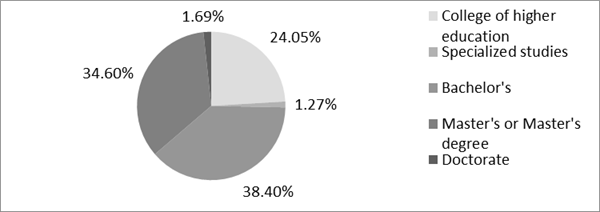
Figure 3. Educational structure of examinees
Results and discussion
The second part of the questionnaire contains questions whose answers allow to determine the level of digital competence of teachers, as well as the level of ability to independently use ICT for preparing lessons and teaching. Figure 4 shows the examinees' answers to the question related to attending a training course related to the use of ICT in teaching. The majority of the total number of examinees (77.5%) attended some course. It can be noticed that more than three quarters of examinees have some form of informal ICT education.

Figure 4. Have you attended any training course related to the use of ICT in teaching?
The purpose of using modern technologies is shown in Figure 5. Examinees had the opportunity to give multiple answers and it can be seen that modern technologies are used most often for finding teaching materials (26.42%) and preparing for teaching (22.63%), then follow information dissemination (20.85%), communication (17.77%) and social networks (11.02%). Other purposes, including conducting lessons, student motivation, conducting online classes and other needs are represented by less than one percent.
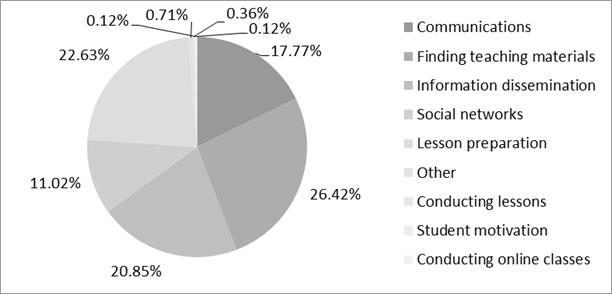
Figure 5. The purpose of using modern technologies
Figure 6 shows the examinees' answers to the question of which modern technology tools and devices they use when preparing lessons and teaching. Examinees could give multiple answers. Based on the answers given, it can be observed that the most commonly used device is a computer or laptop, which was chosen by 230 examinees when preparing lessons and teaching. In addition, examinees separated the Internet (215 examinees), a video beam (192 examinees), e-platforms (137 examinees), educational software (61 examinees), interactive whiteboard (38 examinees) and TV (28 examinees). The smallest number of examinees (only 5 examinees) chose DVD recorder as the device they most often use when preparing lessons and teaching.
In the similar research conducted in primary and secondary schools in the territory of the Municipality of Zvornik, the largest percentage of examinees also stated that they use the computer the most out of digital devices when preparing lessons and teaching (Blagojević et al., 2022). Authors who researched the use of computers for the purpose of preparing lessons and teaching by teachers who do not teach informatics came to similar findings (Ilić, 2020).
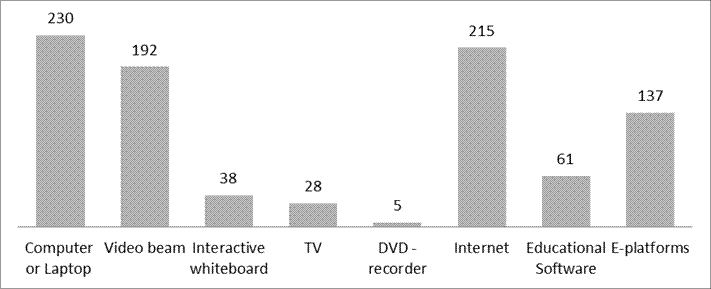
Figure 6. Which modern technology tools and devices do you use when preparing lessons and teaching?
Figure 7 shows the examinees' responses related to self-assessment of IT literacy. The largest number of examinees, representing almost half of the total number (44.07%), rated their IT literacy as good with a score of 4. While 27.54% of examinees gave a score of 3, and a quarter of examinees (25.42)% consider their IT literacy is very good. Of the total number of examinees 2.54% rated their IT literacy as 2. Less than one percent (0.42%) of examinees consider their IT literacy is very poor. More than 95% of examinees rated their IT literacy with a score of 3 (adequate) or better.
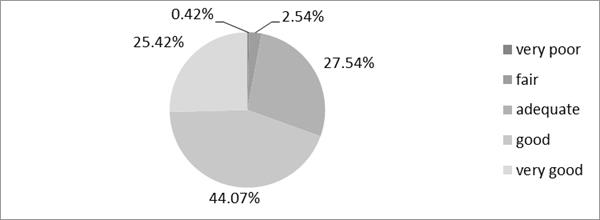
Figure 7. Rates of IT literacy
Alos, according to research (Rogošić et al., 2021) conducted in secondary vocational schools in Zagreb and Zagreb County, the majority of teachers rate their IT literacy very highly in terms of the use of widely applicable computer programs within the Microsoft Office package.
The last part of the questionnaire used a modified Likert scale with multiple-choice questions to examine teachers' attitudes towards the introduction of an ICT professional associate into educational practice. Figure 8 shows that almost two-thirds of the examinees strongly agree or mostly agree with the statement that they would like to have an ICT professional associate. It also can be notice that about 15% of examinees strongly disagree or mostly disagree with that statement and about one fifth of examinees have no opinion regarding ICT specialist as a collaborator.

Figure 8. I would like to have an ICT specialist as a collaborator
More than half of the examinees strongly agree or mostly agree with the statement that a professional associate would be of great help in preparing lessons and teaching, while one quarter of the examinees stongly disagree or mostly disagree with this statement, as shown in Figure 9. Almost one-fifth of examinees have no opinion regarding the significance of assistance from professional associate in preparing lessons and teaching.

Figure 9. Having a professional associate would be of great help to me in preparing lessons and teaching
The research findings (Milić & Milojević, 2022) also show that the examinees have a great need for professional help in order to expand their knowledge and improve the skills needed for teaching using ICT.
Figure 10 shows that almost two-thirds of the examinees strongly agree or mostly agree with the statement that they would like to have an ICT professional associate which would assist them in creating quizzes and presentations to make the classes more engaging and improve the teaching quality. Almost a fifth of examinees strongly disagree or mostly disagree with this statement, while 15% of them are undecided.
Also, according to research (Ranđelovic, 2022), the majority of teachers believe that the application of ICT in teaching contributes to the improvement of the quality and durability of acquired knowledge among students.

Figure 10. I would like a professional associate to assist me in creating quizzes and presentations to make the classes more engaging and improve the teaching quality
Figure 11 shows the examinees' answers about the need to know various digital tools for creattion of teaching materials and tests. Based on the examinees' answers, it can be seen that three quarters of the examinees strongly agree or mostly agree with the statement that they would like to have more knowledge about digital tools in order to create more fun and better teaching materials and tests and thus motivate students to better follow the lessons. About 13% of examinees strongly disagree or mostly disagree with this statement, while 12% have no opinion on this issue.

Figure 11. I would like to know various digital tools and learn to create teaching materials and tests
Similar research (Milić & Milojević, 2022) shows that teachers have a significant need to learn about digital tools intended for the creation of teaching materials, including quizzes, educational computer games and multimedia presentations. Also, according to research (Randjelovic, 2022), the majority of teachers believe that the application of ICT in teaching contributes to the improvement of the quality and durability of acquired knowledge among students.
At the end of the questionnaire, there are questions related to the new accredited study program Digital Education. Structure of examinees' answers to the question “Are you familiar with the fact that at the Faculty of Education in Sombor from the academic year 2023/24 is there an accredited study program Digital Education at the undergraduate and master's level, which trains a profile that will help and support teachers in the application of ICT during the preparation lessons and teaching?“ is shown in Figure 12. Based on the responses received, it can be concluded that the more than 80% of examinees are not familiar with the accreditation of the Digital Education new study program.
The responses which show that more than two thirds of examinees support the new accredited study program and consider it useful are given in Figure 13. About 7% of examinees do not support the accreditation of the new study program, while about a fifth of examinees are undecided.
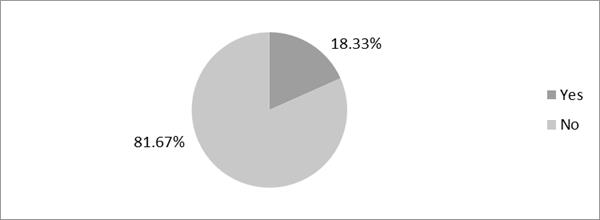
Figure 12. Digital Education study program
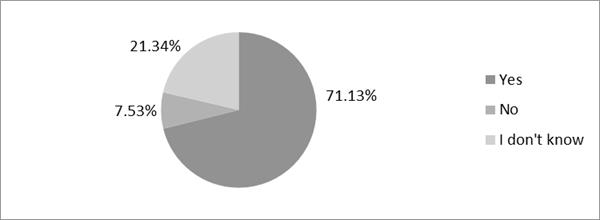
Figure 13. Do you support and consider the accreditation of Digital Education study program is useful?
The findings of this research show that the introduction of a professional associate in the field of ICT would be extremely useful for improving the quality of teaching, which implies the use of digital technologies in their full potential and capacity. Also, it should be noted that there are certain limitations of this research that may affect the findings, having in mind that the research was conducted in primary and secondary schools only in the territory of Vojvodina. Therefore, it would be useful to conduct research on the territory of the entire Republic of Serbia and determine the attitudes of teachers in both urban and rural areas. In order to improve the Digital Education study program, it would be useful to direct further research towards examining students' satisfaction with the existing study program, as well as identifying their suggestions for improving the study program.
Conclusions
The research results presented in this paper show even if the majority of teachers have a satisfactory level of digital competence and use digital technolgies in educational practice, most of them believe that the introduction of a professional associate in the application of ICT would be extremely helpful for higher quality teaching and enable the use of digital technologies in full capacity. Findings of this research show that the majority of teachers are not familiar with the accreditation of the Digital Education study program. Also, they support accreditation and consider it useful. Finally, on the basis of the obtained results, it can be concluded that there is a real need for accreditation of the Digital Education study program, but it is necessary to work on its promotion.
References
Balanskat, A., Blamire, R., & Kefala, S. (2006). A review of studies of ICT impact on schools in Europe. Brussels: European Schoolnet.
Bjekić, D., Krneta, R., & Milošević, D. (2008). Kompetencije za e-nastavu u sistemu profesionalnih kompetencija nastavnika osnovne škole. Inovacije u nastavi, 21(2), 7-20.
Blagojević, M., Lazarević, M., Jović, N. & Nikolić, M.(2022). Analiza stanja informatičke pismenosti učenika i nastavnika u osnovnim i srednjim školama sa opštine Zvornik. Bijeljinski metodički časopis, 13, 39-57.
Campbell, L., & Heller, S. (2019). Building computational thinking: Design and making in teacher education. Recruiting, preparing, and retaining stem teachers for a global generation (pp. 163-189). Leiden: Brill.
Chetty, R. Friedman, J., & Rockoff, J. (2014). Measuring the impacts of teachers II: Teacher value-added and student outcomes in adulthood. American economic review, 104(9), 2633-2679.
Džigurski, S. Simić, S., Marković, S. & Šćepanović, D. (2013). Istraživanje o upotrebi informaciono-komunikacionih tehnologija u školama u Srbiji. Beograd: Tim za socijalno uključivanje i smanjenje siromaštva.
Faculty of Education (2023). Accreditation. Retrieved on 28th March 2025 from http://www.pef.uns.ac.rs/index.php/home/2021-11-29-09-28-35/170-alreditacija2023
Google (2016). Trends in the State of Computer Science in U.S. K-12 Schools. Retrieved on 15th December 2024, from https://services.google.com/fh/files/misc/trends-in-the-state-of-computer-science-report.pdf
Heintz, F., Mannila, L. & Faernqvist, T. (2016). A review of models for introducing computational thinking, computer science and computing in K–12 education. FIE 2016 - Frontiers in Education 2016: The Crossroads of Engineering and Business (pp. 1-9). USA: Institute of Electrical and Electronics Engineers Inc.
Ilić, S. (2020). Upotreba informacionih tehnologija u nastavi – stavovi i mišljenja nastavnika i učenika, dissertation, Novi Sad: Prirodno-matematički fakultet.
Milić, K. M. & Milojević, A. (2022). Medijska i informacijska pismenost nastavnika i bibliotekara u Srbiji u procesu izvođenja nastave na daljinu. Vjesnik bibliotekara Hrvatske, 159-183.
Nenner, C., & Bergner, N. (2022). Informatics Education in German Primary School Curricula. In Bollin, A. & Futschek, G. (Eds), Informatics in Schools. A Step Beyond Digital Education ISSEP 2022 (pp. 3-14). Cham: Springer.
Nikolić, I., Banđur, V., & Martinović, D. (2020). Uloge nastavnika u školi digitalnog doba. Sociološki pregled, 54(1), 88-103.
Novković Cvetković, B. & Belousova, A. (2018). Media and information literacy - the basis for applying digital technologies in teaching from the discourse of educational needs of teachers. Croatian Journal of Education/Hrvatski časopis za odgoj i obrazovanje, 20(4), 1089-1114.
Raman, R., Venkatasubramanian, S., Achuthan, K. & Nedungadi, P. (2015). Computer science (CS) education in Indian schools: Situation analysis using Darmstadt model. ACM Transactions on Computing Education (TOCE), 15(2), 1-36.
Ranđelović, A. & Vuković, O. (2022). Analiza stanja informatičke pismenosti u osnovnim i srednjim školama sa opštine Bijeljina. Bijeljinski metodički časopis, 13, 65-79.
Rogošić, S., Baranović, B. & Šabić, J. (2021). Primjena IKT-a u procesu učenja, poučavanja i vrednovanja u srednjim strukovnim školama: Kvalitativna analiza. Metodički ogledi: časopis za filozofiju odgoja, 28(1), 63-88.
Sovilj-Nikić, S, Delić, V., Sovilj-Nikić, I. & M. Marković, (2014). Tree-based phone duration modeling of the Serbian language. Electronics and Electrical Engineering (Elektronika ir Elektrotechnika), 20(3), 77-82.
Sovilj-Nikić, S., Sovilj-Nikić, I. & Marković, M., (2018). Meta learning approach to phone duration modeling. Tehnički vjesnik/Technical Gazette, 25(3), 855-860.

